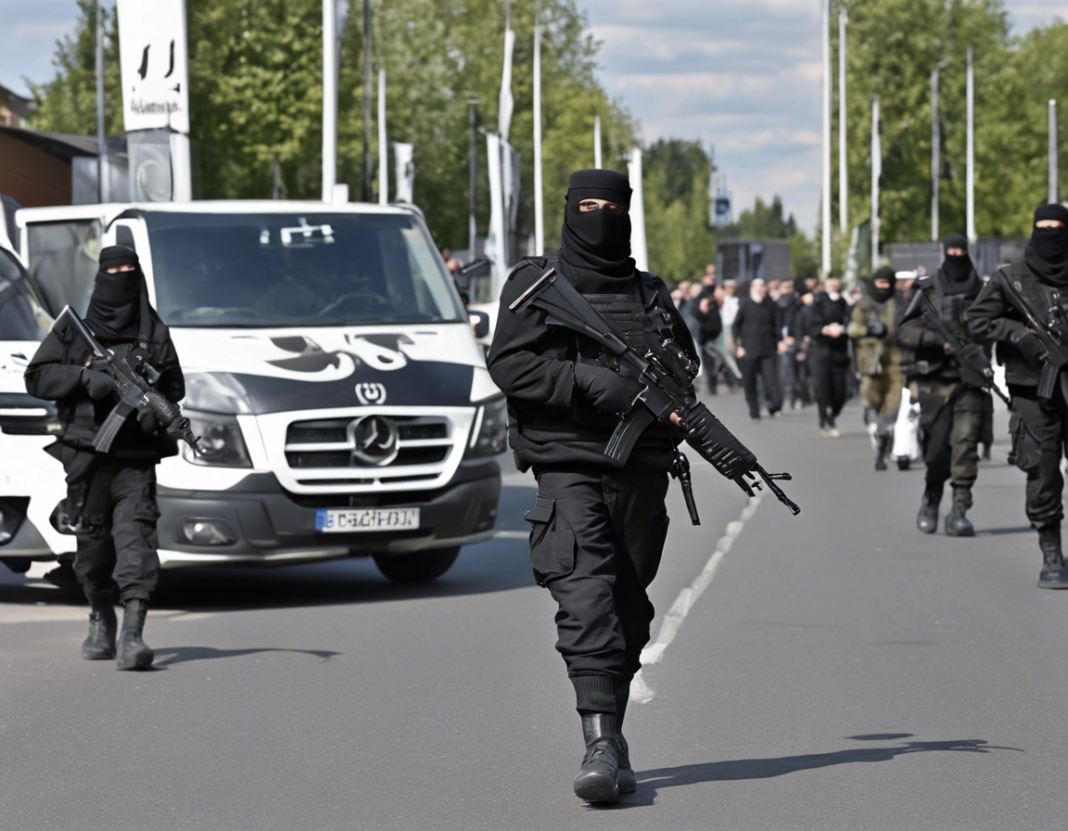Introduction
The presence of Islamic State ideology within Germany has raised significant concerns among policymakers and the general public alike. Over the years, there have been instances of individuals in Germany being influenced by the extremist ideology promoted by the Islamic State (IS) group, leading to radicalization, recruitment, and even acts of violence. In this article, we will delve into the factors contributing to the spread of IS ideology in Germany, the challenges faced in countering this phenomenon, and the implications for national security and social cohesion.
Factors Contributing to the Spread of IS Ideology in Germany
-
Online Propaganda: The internet and social media platforms have played a pivotal role in disseminating IS propaganda, enabling the group to reach a global audience, including individuals in Germany. The radicalizing content glorifies violence, promotes extremist ideologies, and offers a sense of belonging to vulnerable individuals, making them susceptible to radicalization.
-
Community Networks: Some communities in Germany, particularly marginalized immigrant populations, may feel alienated and disenfranchised, creating fertile ground for extremist actors to exploit grievances and offer a distorted sense of purpose and identity through IS ideology.
-
Foreign Fighters Return: The influx of foreign fighters returning to Germany from conflict zones such as Syria and Iraq poses a significant security challenge. These individuals may bring back radicalized beliefs and combat experience, serving as potential catalysts for spreading IS ideology within the country.
-
Prison Radicalization: Prisons have been identified as breeding grounds for radicalization, where inmates vulnerable to extremist influence may be exposed to IS ideology and recruitment efforts. This poses a challenge in terms of deradicalization and preventing recidivism post-release.
Challenges in Countering IS Ideology in Germany
-
Legal Framework: Germany faces challenges in developing and implementing legislation that effectively addresses the dissemination of extremist propaganda online while safeguarding freedom of speech. Striking a balance between counterterrorism measures and civil liberties remains a complex task.
-
Integration and Social Cohesion: Promoting social cohesion and integration among diverse communities is crucial in countering IS ideology. Addressing marginalization, discrimination, and socio-economic disparities can help prevent radicalization by fostering a sense of belonging and inclusion.
-
Counter-Narratives: Developing and promoting alternative narratives that challenge and debunk extremist ideologies is essential in countering IS propaganda. This includes engaging with at-risk individuals, communities, and online platforms to provide counter-narratives that offer constructive pathways away from radicalization.
-
Multilateral Cooperation: Given the transnational nature of the threat posed by IS ideology, international cooperation and information sharing are paramount. Collaborating with EU partners, intelligence agencies, and law enforcement entities is crucial in disrupting extremist networks and preventing radicalization.
Implications for National Security and Social Cohesion
The presence of IS ideology in Germany poses significant implications for national security and social cohesion. The risk of terrorist attacks carried out by individuals radicalized by IS propaganda remains a pressing concern for security agencies. Moreover, the potential for intercommunal tensions and polarization within society can erode trust and unity, undermining the fabric of a diverse and inclusive society.
Addressing the spread of IS ideology requires a comprehensive and multi-dimensional approach that combines security measures with preventive strategies, community engagement, and initiatives aimed at promoting social cohesion. By addressing the root causes of radicalization and fostering resilience within communities, Germany can effectively counter the influence of IS ideology and safeguard its national security interests.
Frequently Asked Questions (FAQs)
-
What is the Islamic State ideology?
The Islamic State ideology espouses a radical interpretation of Islam that promotes violent extremism, Jihadist warfare, and the establishment of a global caliphate governed by strict sharia law. It seeks to recruit followers worldwide to further its extremist agenda. -
How does IS ideology spread in Germany?
IS ideology spreads in Germany through online propaganda, community networks, returnees from conflict zones, and radicalization in prisons. Vulnerable individuals are targeted with extremist messaging that glorifies violence and offers a sense of belonging. -
What are the challenges in countering IS ideology in Germany?
Challenges in countering IS ideology in Germany include navigating legal frameworks, promoting social cohesion and integration, developing counter-narratives, and enhancing multilateral cooperation to address the transnational nature of the threat. -
What role does social cohesion play in countering IS ideology?
Social cohesion plays a crucial role in countering IS ideology by fostering inclusivity, addressing marginalization, and promoting dialogue among diverse communities. Building resilience and a sense of belonging can mitigate the appeal of extremist narratives. -
How can individuals and communities contribute to countering IS ideology?
Individuals and communities can contribute to countering IS ideology by promoting tolerance, reporting suspicious activities, engaging in inclusive dialogue, and advocating for initiatives that address the root causes of radicalization.
In conclusion, the presence of Islamic State ideology in Germany necessitates a concerted effort on multiple fronts to prevent radicalization, safeguard national security, and promote social cohesion. By addressing the underlying factors that contribute to the spread of extremism and fostering resilience within communities, Germany can effectively counter the influence of IS ideology and uphold its values of democracy, inclusivity, and peace.
